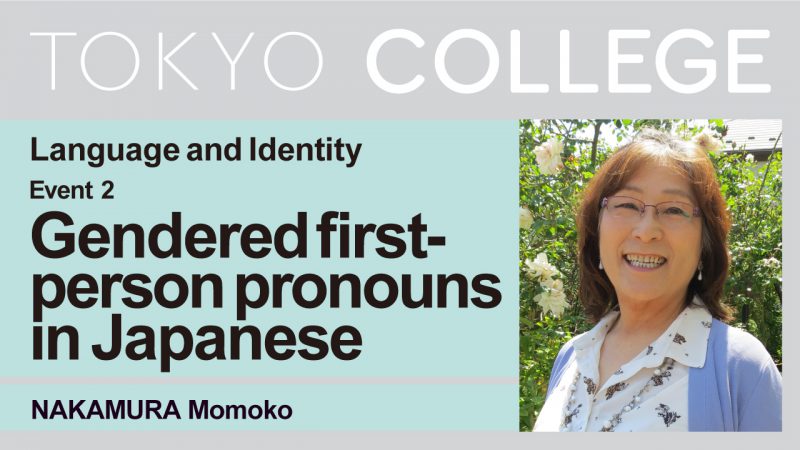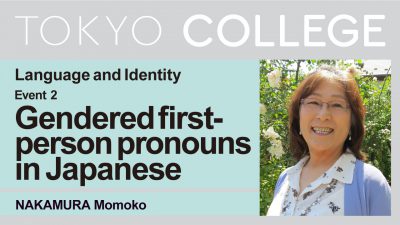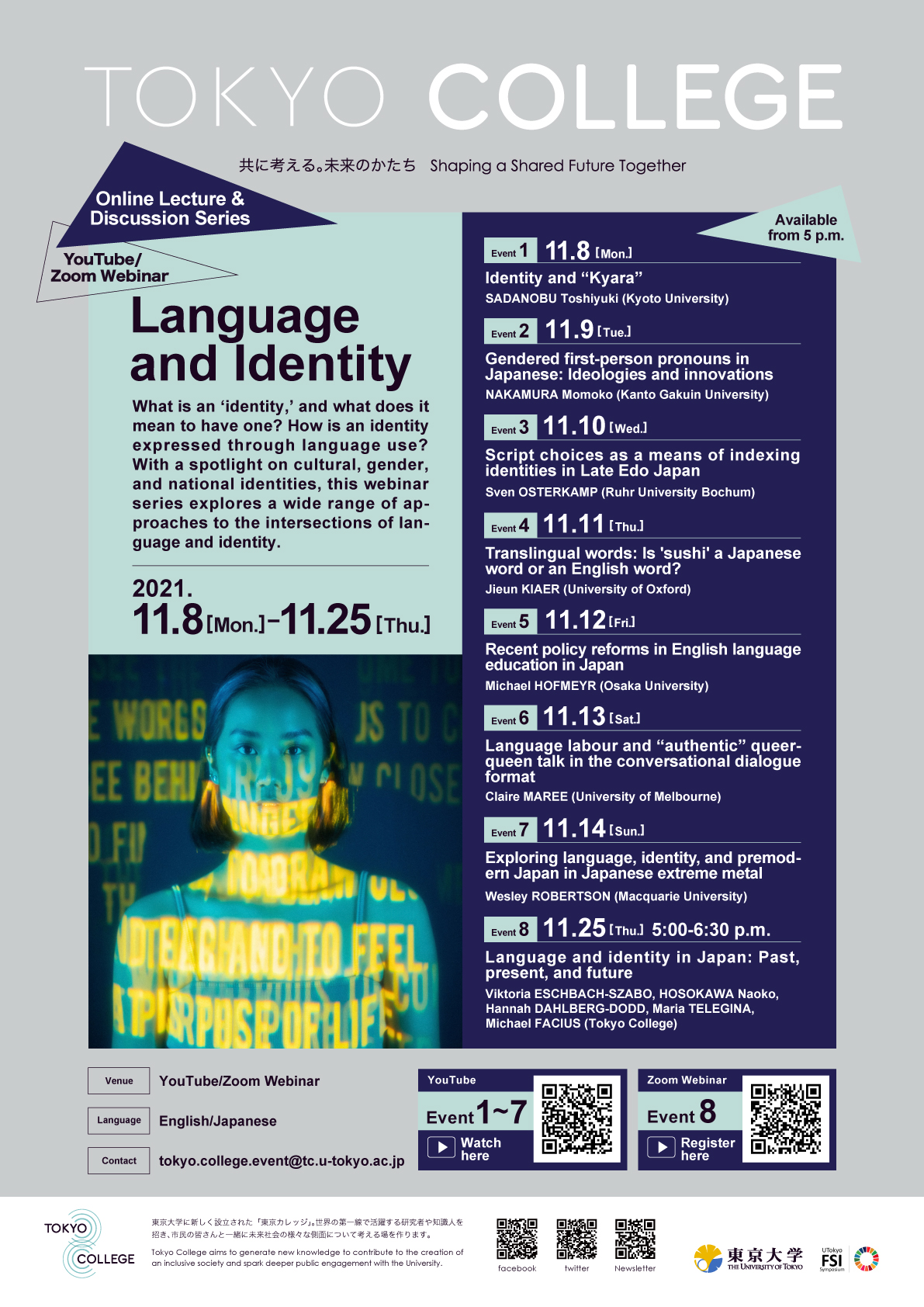Language and Identity Series Session 2: “Gendered First-person Pronouns in Japanese: Ideologies and Innovations”

| Date(s) | Tuesday, 9 November 2021 (available from 17:00 JST) |
|---|---|
| Venue | |
| Language | English (Japanese simultaneous interpretation available) |
| Abstract |
This talk demonstrates how language simultaneously enables and restricts our identity construction. Focusing on some preadolescent girls’ use of non-normative pronouns boku, ore, and uchi, Prof. NAKAMURA Momoko argues that their non-normative usage can be seen as the innovation of the new identities of preadolescent girls.
Japanese first-person pronouns are gendered; watashi for girls and women (and men in formal situations) and boku for boys and men. The gendered first-person pronouns constitute the taken-for-granted norms so that there has been no serious investigation concerning why Japanese first-person pronouns are gendered and why some girls use nonnormative pronouns.
To fill the gap, Prof. NAKAMURA critically analyzed both historical and contemporary discourses. Her analysis first shows that Japanese first-person pronouns were gendered because modern Japanese language, kokugo, was tailored for male speakers, reflecting the sexist policy of gendered nationalization, which set males as primary citizens and females as secondary citizens, of the Meiji government. As a result, linguists prescribed pronouns appropriate for male speakers as legitimate kokugo and female speakers ended up using pronouns that have less association with masculinities, creating gendered pronouns. Second, some girls use non-normative pronouns because they want to postpone accepting the female heterosexuality, which is associated with watashi. For preadolescent girls, becoming a heterosexual woman can imply becoming a potential target of sexual abuse. Thus, they avoid watashi and choose other pronouns. Since there is no pronoun for a preadolescent girl in the pronouns system, girls’ use of non-normative pronouns works to create the new identities of preadolescent girls. |
| Program |
Speaker: NAKAMURA Momoko (Professor, College of Business Administration, Kanto Gakuin University)
Commentator: Maria TELEGINA (Postdoctoral Fellow, Tokyo College)
Moderator: Viktoria ESCHBACH-SZABO (Professor of Japanese Studies, University of Tübingen / Invited Professor, Tokyo College, University of Tokyo) |
| Organized by | Tokyo College, The University of Tokyo |
| Contact | tokyo.college.event@tc.u-tokyo.ac.jp |














